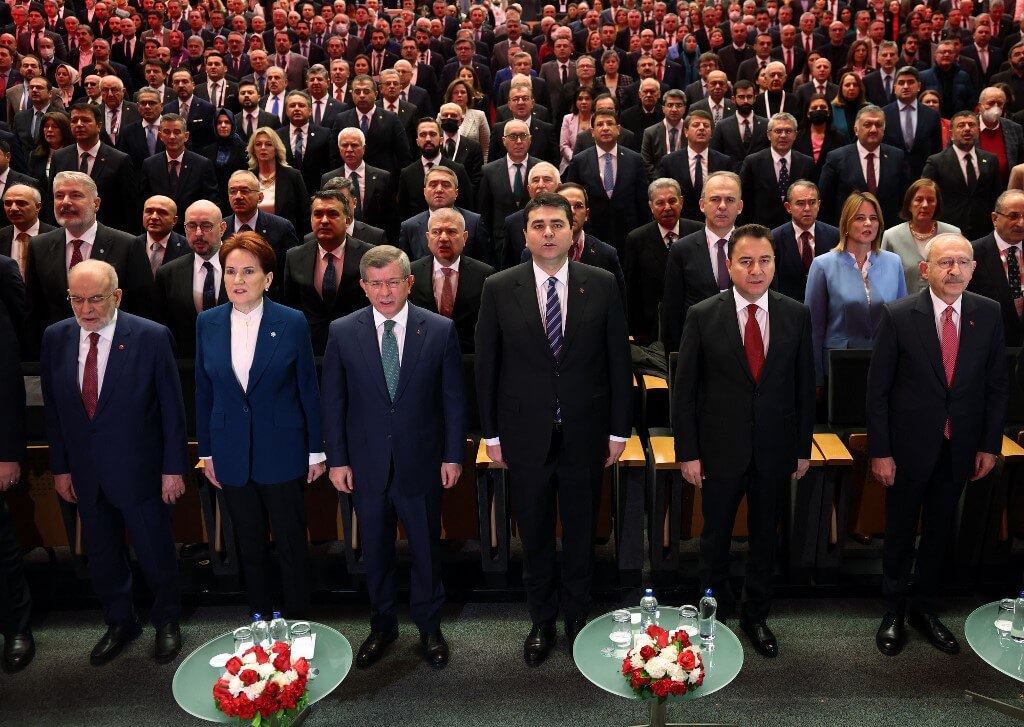Turkey’s political opposition was supposed to agree Monday on a joint candidate to challenge Recep Tayyip Erdoğan’s 20-year grip on power at the ballot box.
But a catastrophic earthquake, which has killed more than 35,000 people in Turkey and Syria, has postponed the meeting and thrown the timing of May elections into doubt.
Ruling and opposition party sources now speculate that Erdoğan will delay the May 14 presidential and parliamentary elections in the wake of Turkey’s worst disaster of modern times.
“This is going to change things — not just for the government, but also for the opposition,” said Berk Esen, an assistant professor of political science at İstanbul’s Sabancı University.
The earthquake, and indeed any delay to the vote, could transform the political landscape, presenting both Erdoğan — who was first elected prime minister in 2003 — and his rivals with new opportunities and risks, experts say.
Unable to agree on a candidate for more than a year, Erdoğan’s opponents now have more time to come to a consensus with Monday’s meeting postponed indefinitely.
They must use that time wisely, analysts say, trying to tap into public anger over the monumental scale of the destruction without appearing to seek political gain from the tragedy.
“The horrific events have handed the political opposition new ammunition against the government — ammunition propelled by public anger and grievance,” said Anthony Skinner, a political risk consultant.
Erdoğan has not uttered a word about elections since the earthquake but appears on television multiple times a day, hugging survivors and consoling the nation.
‘Duty to hold vote’
Kemal Kılıçdaroğlu, a former civil servant with tepid national support who heads Turkey’s main secular party, has long been seen as the frontrunner in the bid to end Erdoğan’s rule.
But Meral Akşener of the nationalist İYİ Party has resisted Kılıçdaroğlu, appearing to back instead İstanbul’s popular opposition mayor Ekrem İmamoğlu.
“The opposition was already in a very delicate position” as divisions were rife, Esen said.
Esen said Kılıçdaroğlu is now more likely to become the opposition candidate because “it’s going to be very difficult” for someone else to campaign openly at the time of national grief.
Experts believe a May vote is out of the question but that it could take place in June, the latest date by which elections must happen according to the constitution.
Erdoğan cannot postpone the election beyond June without amending the constitution, and for that he would need a two-thirds majority in parliament.
That requires 400 votes. Erdoğan and his far-right parliamentary allies only have 333, meaning that he would need the opposition to back a longer delay.
Sinem Adar, an associate at the Centre for Applied Turkey Studies in Berlin, said one pillar of the opposition’s strategy should be to ensure the elections happen by June.
Akşener, for one, is pushing for a June vote.
Confronting Erdoğan
“It is our duty as politicians to hold this vote,” she told journalists last week.
But the opposition has also been divided in its response to the earthquake.
Akşener opted to stay quiet and avoid quake-hit regions in the first few days, while Kılıçdaroğlu swiftly visited affected areas, seeking to console victims.
He has lambasted Erdoğan, accusing him of failing to prepare Turkey for earthquakes.
On Saturday he appeared with the pro-Kurdish leader in quake-affected Diyarbakır, the only province that did not vote for Erdoğan’s alliance in the 2018 polls.
The mayors of İstanbul and Ankara, two of the opposition’s most popular politicians, have shared images of municipal employees helping rescue efforts, cleaning the rubble and providing hot food to survivors.
Akşener gave a more muted response and said she waited for 72 hours to avoid being an obstacle to rescue efforts.
Adar said the earthquake might bring into sharp relief cracks among the opposition — manifest in disagreements over the candidate and what roles each party will play.
Esen cautioned against reading too much into the different responses since only a week had passed but said it showed a lack of coordination among the opposition.
© Agence France-Presse

